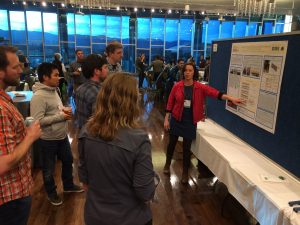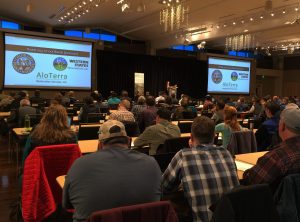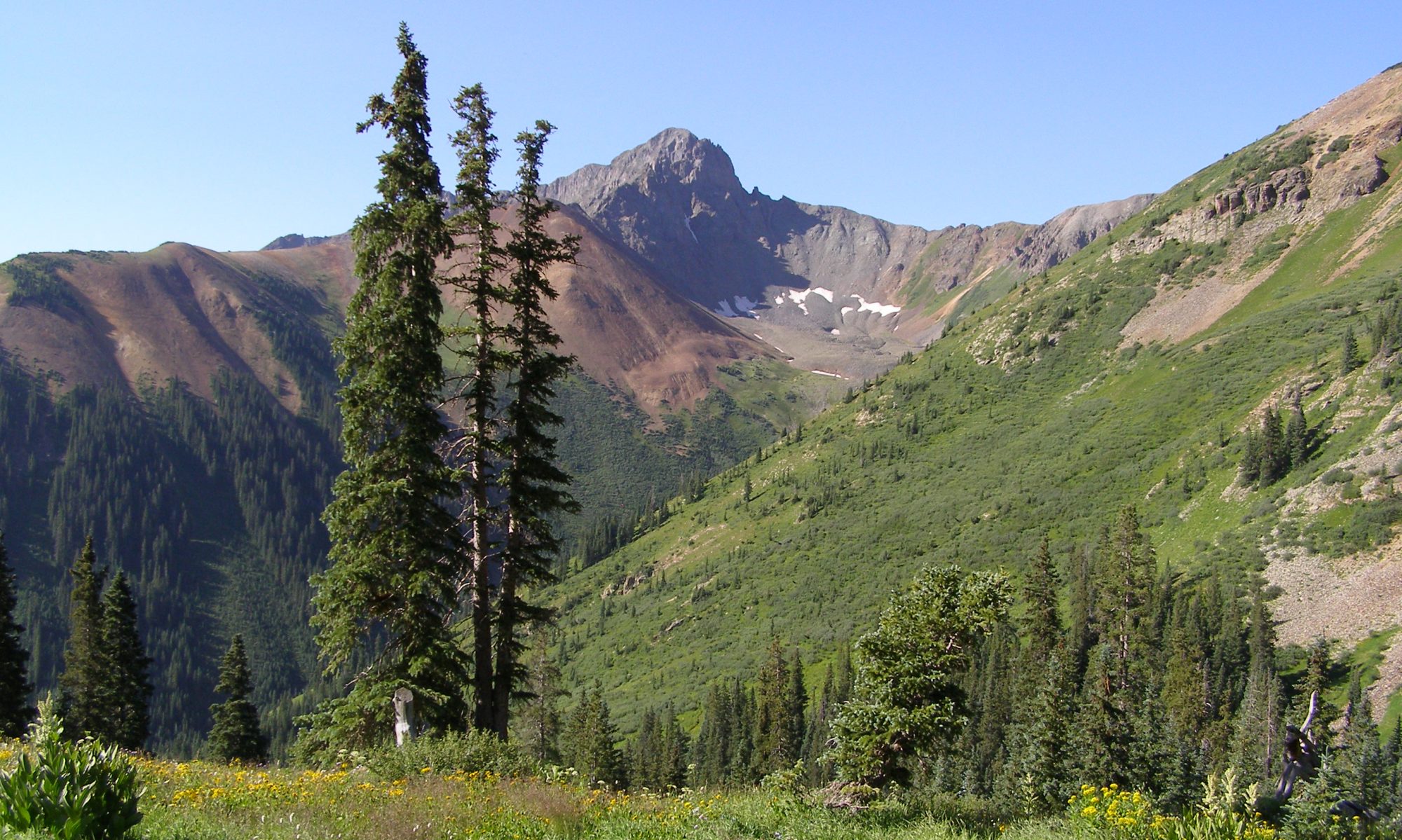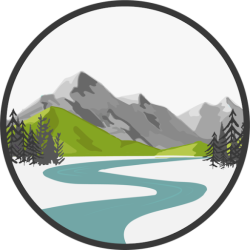Keynote Addresses
Making restoration better (Nothing in this presentation is true but it’s exactly how things are)
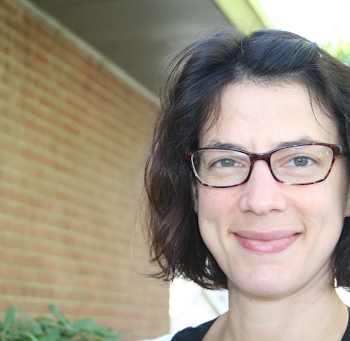
Dr. Elise Gornish
Cooperative Extension Specialist in Ecological Restoration, The University of Arizona School of Natural Resources and the Environment
Keynote Address Abstract
Ecological restoration has now been a formalized field of research and application for long enough to be characterized by individuals who call themselves experts. Whether we are researchers or practitioners, many of us have been doing restoration ‘for a long time.’ But, has our perceived expertise and experience hampered our efforts? Do we think we know what’s best? Do we forget to spend time with the projects that fail? Do we hide our failures from others? This talk will be an exploration into how we can make restoration better, by continuing to do what we are doing – but changing everything. With examples largely from my own work, this talk will be the gentle reminder we all need that not only do we not know everything, but we know more than we think.
About Elise Gornish
Dr. Elise Gornish is a Cooperative Extension Specialist in Ecological Restoration at the University of Arizona. Her work largely focuses on identifying strategies for successful restoration in arid land systems and integration of restoration approaches into weed management. Originally from New York, Dr. Gornish received her MS and PhD from Florida State University in 2013. She then completed two years of a post doc at the University of California, Davis. In addition to vegetation management, Dr. Gornish is passionate about STEM inclusion and is also the Director of GALS (Girls on outdoor Adventure for Leadership and Science). GALS focuses on providing science learning and leadership opportunities to traditionally underserved female high school students through backcountry programming.
Climate change, ecological drought, and revegetation challenges in western drylands.
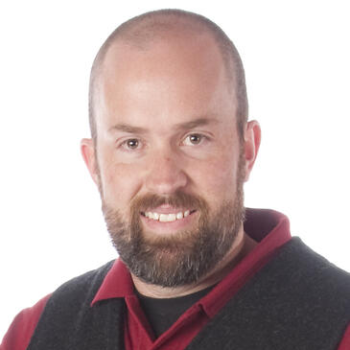
John Bradford
Research Ecologist, and Chief, Terrestrial Ecosystems Drylands Branch, USGS Southwest Biological Science Center, Flagstaff, AZ
Keynote Address Abstract
Climate change is altering ecosystems and challenging natural resource managers and policy makers. Water limited dryland ecosystems, which are prevalent across western North America and comprise a large proportion of public land, may be especially vulnerable to anticipated increases in temperature and aridity because these drylands are tightly controlled by patterns of moisture availability. This talk will review some of the key characteristics of expected changes in climate and ecological drought in western drylands, assess how those changes may alter dryland ecosystem structure and function, and evaluate the potential implications for resource management. We will consider the impact of climate change and altered drought patterns on revegetation in dry environments and explore potential tools and decision frameworks that may be useful for managing drylands in the dynamic climate of the 21st century.
About John Bradford
John Bradford is a Research Ecologist with the USGS Southwest Biological Science Center. John studies dryland ecosystems in the context of global change and works with resource managers to identify adaptive strategies for sustaining these ecosystems in a changing world. He is currently engaged in the broad topics of ecohydrology and dryland sustainability in the western U.S. and has projects examining a) the potential influence of changing climatic conditions on the distribution and regeneration potential of trees and shrubs in the intermountain western U.S., b) strategies for understanding and enhancing dryland ecosystem resilience to changing climate and drought, and c) ecosystem water balance and patterns of plant-available soil water in dryland regions.
Building relational and effective partnerships with Indigenous Communities
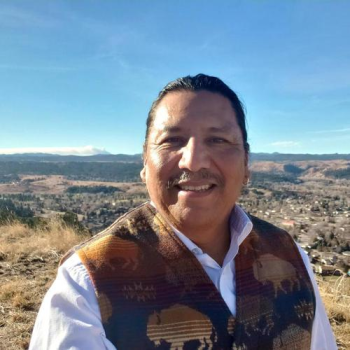
James Rattling Leaf, Sr.
Coordinator, Climate Partnerships for the Great Plains Tribal Water Alliance and Principal, Rattling Leaf Consulting LLC, Black Hawk, South Dakota
Keynote Address Abstract
The presentation will outline recommendations for working with Indigenous communities based on the knowledge that long-term relationship building with these communities is the foundation upon which educational programs, research collaborations, and other initiatives must be co-created. This presentation will define best practices in building relationships and clarify a process for establishing and maintaining effective collaborations with Indigenous communities that respect sovereignty and self-determination.
About James Rattling Leaf, Sr.
James Rattling Leaf, Sr. is coordinator of Climate Partnerships for the Great Plains Tribal Water Alliance and Principal, Rattling Leaf Consulting LLC. A member of South Dakota’s Rosebud Sioux tribe, James has served as a Visiting Collaborator, South Dakota School of Mines and Technology; Director, Geo-Spatial Applications Center, Sinte Gleska University; Board Member, Education Committee, American Geophysical Union (AGU); Fellow, International Indigenous Resource Management Institute, Denver; Cultural Advisory Board Member, Deep Underground Science and Engineering Lab; Board of Directors, South Dakota National Science Foundation EpSCOR; Member, NASA Space Grant Consortium EpSCOR Technical Advisory Committee; and Cultural Advisor, NOAA National Integrated Drought Information Systems (NIDIS). James received his B.A. in Lakota Studies from Sinte Gleska University (Rosebud Reservation, Mission, South Dakota).
Wondering what to expect? Check out recaps and programs from our most recent conferences:
